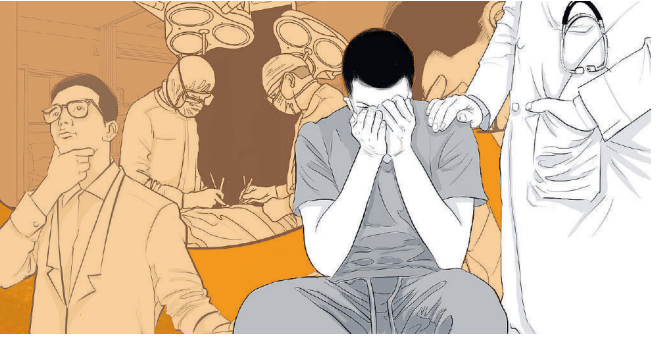

Two men of note died in the past few weeks.
They said they were just following orders. That’s what the junior police officers claimed after Albert Ojwang'—a young teacher and blogger—died in police custody.
The postmortem told a different story: blunt trauma, neck compression, signs of violence. Not an accident. Not a collapse. A decision. Someone gave the order. Someone obeyed.
And years before, Gilbert Deya—once hailed as a man of God—was at the centre of Kenya’s infamous “miracle babies” scandal.
Women, many poor and vulnerable, were told they had conceived through divine power. The babies were stolen—trafficked from desperate mothers—and presented as proof of faith.
All the while, systems watched in silence. Some whispered. Few acted. But, more importantly, Gilbert Deya decided to be dishonest in the guise of being a man of God.
Both cases shocked the public, as they should. But the deeper truth is harder to swallow: these were not just failures of individual morality. They were failures of culture. Of professions where the wrong thing becomes normal because everyone stops asking what’s right.
We, in healthcare, would like to think ourselves immune to such decay. But we are not. Our failures rarely make the headlines. They unfold quietly, in corridors, charts and conversations cut short. But they kill people too.
When a woman in labour is shouted at until she stops pushing…and the baby dies. When a patient is discharged too soon because the ward is full, and they collapse at home. When a wrong diagnosis is covered up instead of corrected, and cancer spreads unchecked.
When a clinician decides not to “bother” with consent forms because “they’re too ill to understand”. When a lab technician delays results over a bribe…and a child’s treatment is missed by days.
Every one of these moments is someone’s Albert. Every time we say “it wasn’t my fault”, someone’s dignity—someone’s life—is quietly undone. And it does not stop with us. Across Kenya, the erosion of ethics is killing people in pharmacies, in matatus, in schools, in government offices. A bribe here. A lie there. A silence too convenient to break. These small betrayals become national tragedies—not all at once, but brick by brick.
We do not need more rules. We need more people with a conscience that is not for sale, and a standard that does not lower itself to convenience.
We need to remember that the opposite of evil is not good—it’s effort. It’s the decision to care when no one insists. The refusal to shrug when everyone else does. The courage to say: I am responsible for what I choose. No one else.
Because ethics is not about being watched. It’s about being whole. So yes, let us condemn those who harm with violence or exploit with faith. But let us also examine ourselves—those of us who wear white coats, or sit behind desks, or simply pass through the lives of others each day. What do we do in the quiet?
Do we see a struggling colleague and step in—or do we look away? Do we correct a dangerous pattern—or call it “not my job”? Do we treat each patient with the full weight of their humanity—or do we ration our compassion, pretending we do not have time? Ethics is not an emergency response. It’s a muscle. And if we do not use it daily, it fails us when we need it most.
So let this be the lesson we draw—not just from Albert Ojwang’s final moments or Gilbert Deya’s legacy, but from the millions of quieter, smaller decisions being made today in clinics and offices across this country.
A great healthcare system or even a society is not built on equipment or buildings. It’s built on character. On the doctor who owns up to a mistake before anyone finds it. On the nurse who stays kind, even when exhausted. On the administrator who refuses to fudge the numbers. On the intern who dares to ask, “Is this right?”
That’s the real miracle: people who choose to do right, when no one is watching, when there’s nothing to gain, when it would be so easy not to. And maybe that’s the Kenya we need. Not a perfect one. But one that’s quietly, persistently choosing to be better.
OKumu is a surgeon, writer and advocate of healthcare reform and leadership in Africa


















